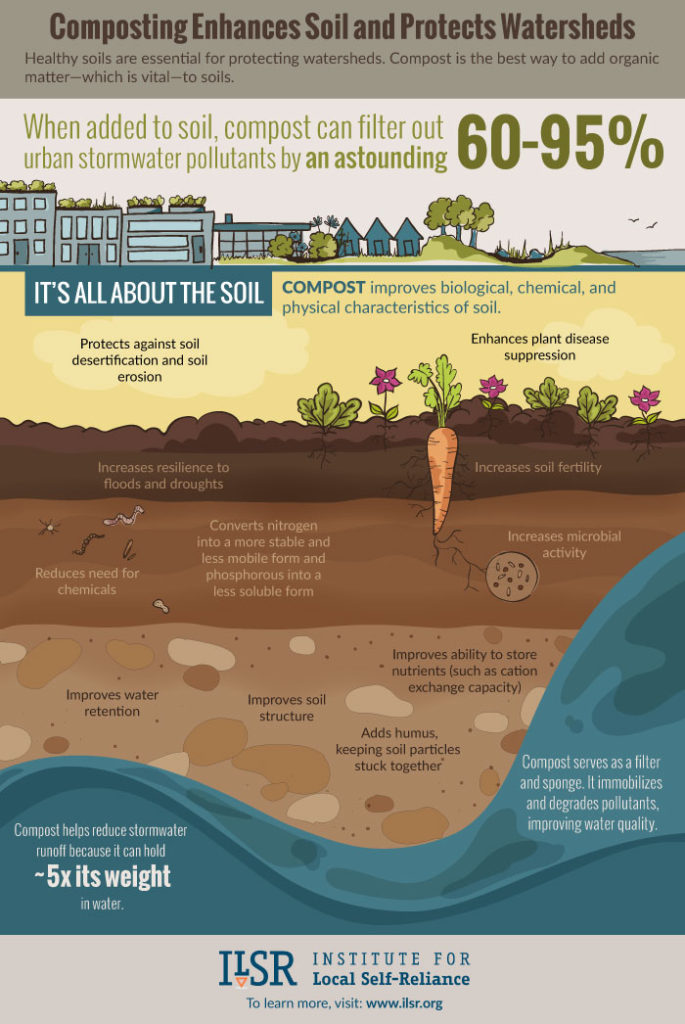Get Lawn Care Near You
How Composting Enhances Soil and Protects Watersheds
- by
- Gene Caballero
- August 13, 2021
It’s no secret, healthy soils are an essential part of protecting watersheds. And one of the best ways to improve the health of the soil is to use compost. But how does compost create healthy soil that protects watersheds? This infographic has what you need to know.
Does compost filter out pollutants?
This is surprising, but compost in the soil can actually improve the water quality by filtering out pollutants. Surprisingly compost can filter out 60-95% of pollutants present in the water. So by the time, it gets back to the watershed, the water is crystal clear.
How does compost improve water quality?
Compost can improve water quality in a variety of ways. It can improve the biological, chemical, and physical characteristics of the soil. It can do so by protecting against desertification and erosion, as well as suppressing plant diseases. The many characteristics of compost help it filter out chemicals and waste.
How much does compost filter out?
Compost can filter out 5 x its weight in water. So when storm-water runs off, the soil can filter it as it passes through. It does this by acting like a filter and a sponge simultaneously. This immobilizes and degrades pollutants.
How can I do my part to improve the local water quality?
By composting food scraps and lawn debris, and keeping local nutrients in your lawn. You can help create a natural filter that will collect waste for years and years to come. This is one of many ways that we can do our part to keep our environment clean, from home!
It’s true, compost acts like a filter for our watersheds such as swamps, streams, and rivers! This infographic was produced by the Institute for Local Self-Reliance. By using compost and many other means, we can help restore the quality of our water without fancy government programs.
Powered by Froala Editor








